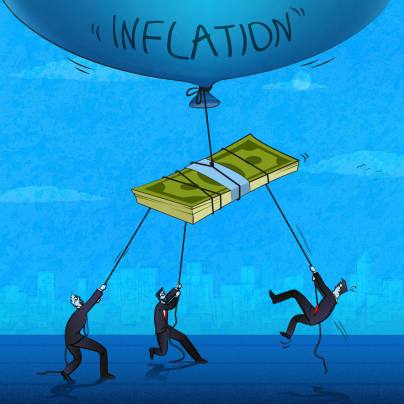Military Service Counts Towards Federal Retirement

Your employing agency is frequently required to collect any deposits made to them to receive military service credit before retirement. Owing to the procedural time needed, it is advisable to make arrangements well ahead of retirement.
Ask your agency how long it will require to register payments as earned (it may take several more months).
Give the Defense Department at least three months to present you with your military income information and the calculations of the needed deposit. Note that time extensions are only allowed in rare situations if the employing agency makes an administrative error.
Offset/Credit for Military Service under CSRS
Outstanding active military service is ordinarily creditable with CSRS/CSRS Offset. However, most military retirees are still not qualified to obtain more credits toward a civilian annuity unless they forfeit their military retirement salary.
It is not necessary to waive military retired pay if Chapter 67 (reservists’) retiring pay or based on a handicap involving particular wartime wounds. The pertinent military retirement pay center will decide if a person is eligible for any of these exceptions.
Whether or not military service qualifies for retirement benefits depends on whether it was rendered after December 31, 1956. Military service became qualified for Social Security beginning in 1957. Laws were modified in 1982 to distinguish between employees hired before October 1, 1982, and individuals who became subject to the CSRS for the first time on or after that date.
Only employees who began working in CSRS-eligible positions after September 30, 1982, and only if they make a payment to cover this service, can receive credit for military service performed after 1956.
Employees in CSRS-covered positions might receive credit for military service rendered after 1956 before October 1, 1982, without having to make a deposit. However, if the person turns 62 and is eligible (or would be eligible upon filing the necessary papers) for ordinary Social Security retirement benefits, credit for this service would be lost unless a payment is made before retirement.
The deposit equals 7% of the military basic pay for the given time plus interest. Interest is computed at a rate of 3% up until 1984, after which it changes annually.
Interest accrues from October 1, 1985, or, if that date is later, from when the employee was first hired for a CSRS-eligible position two years later. The deposit method only permits adding interest at the end of the year after it begins. Therefore, no interest is assessed if the commitment has been fully fulfilled within three years of first becoming subject to CSRS.
Service in the National Guard is typically not acknowledged, except being called to active duty in the U.S. military. However, credit can be given for National Guard service that’s followed by federal civilian reemployment that takes place after August 1, 1990, if specific requirements are satisfied.
The amount that will have been deducted from the employee’s retirement pay if they had continued working in the civilian sector is the maximum deposit for the National Guard service that satisfies these standards.
As mentioned above, military service recognized under CSRS/CSRS Offset is recognized under FERS, but only if paid with a deposit. After 1956, no military service was allowed for credit. This is accurate even if a FERS-eligible employee was hired before October 1, 1982.
The deposit is equal to 3% of the military basic pay for the given time plus interest. The amount that would have been withheld from pay had the employee remained in a civilian position is the maximum amount that may be deducted for eligible National Guard duty. The rate used to calculate interest is the same as the rate applied to CSRS deposits.
Military service interest that will be credited under FERS rules begins to accrue two years after the election to join FERS becomes effective. However, if the deposit is made within three years of the election date to join FERS, no interest will be calculated, just like under CSRS.
Military Deposits After 1956 (“Catch-62”)
Payment is required from any employee who wants their post-1956 military service to be considered when they retire. If the deposit was made before October 1, 1986, no interest would be charged (or within two years of employment if employed after that date). They start owing interest after that.
The overall effect of not depositing this military service is that the pension will be revised to remove those years if the retiree becomes eligible for Social Security at age 62.
Contact Information:
Email: [email protected]
Phone: 9568933225
Bio:
Rick Viader is a Federal Retirement Consultant that uses proven strategies to help federal employees achieve their financial goals and make sure they receive all the benefits they worked so hard to achieve.
In helping federal employees, Rick has seen the need to offer retirement plan coaching where Human Resources departments either could not or were not able to assist. For almost 14 years, Rick has specialized in using federal government benefits and retirement systems to maximize retirement incomes.
His goals are to guide federal employees to achieve their financial goals while maximizing their retirement incomes.
Popular posts

Checklist for a Successful...
Key Takeaways: Proper preparation...

FEGLI Coverage Options: Choosing...
Key Takeaways: Understanding the...
Free Retirement Benefits Analysis
Federal Retirement benefits are complex. Not having all of the right answers can cost you thousands of dollars a year in lost retirement income. Don’t risk going it alone. Request your complimentary benefit analysis today. Get more from your benefits.
I want more



